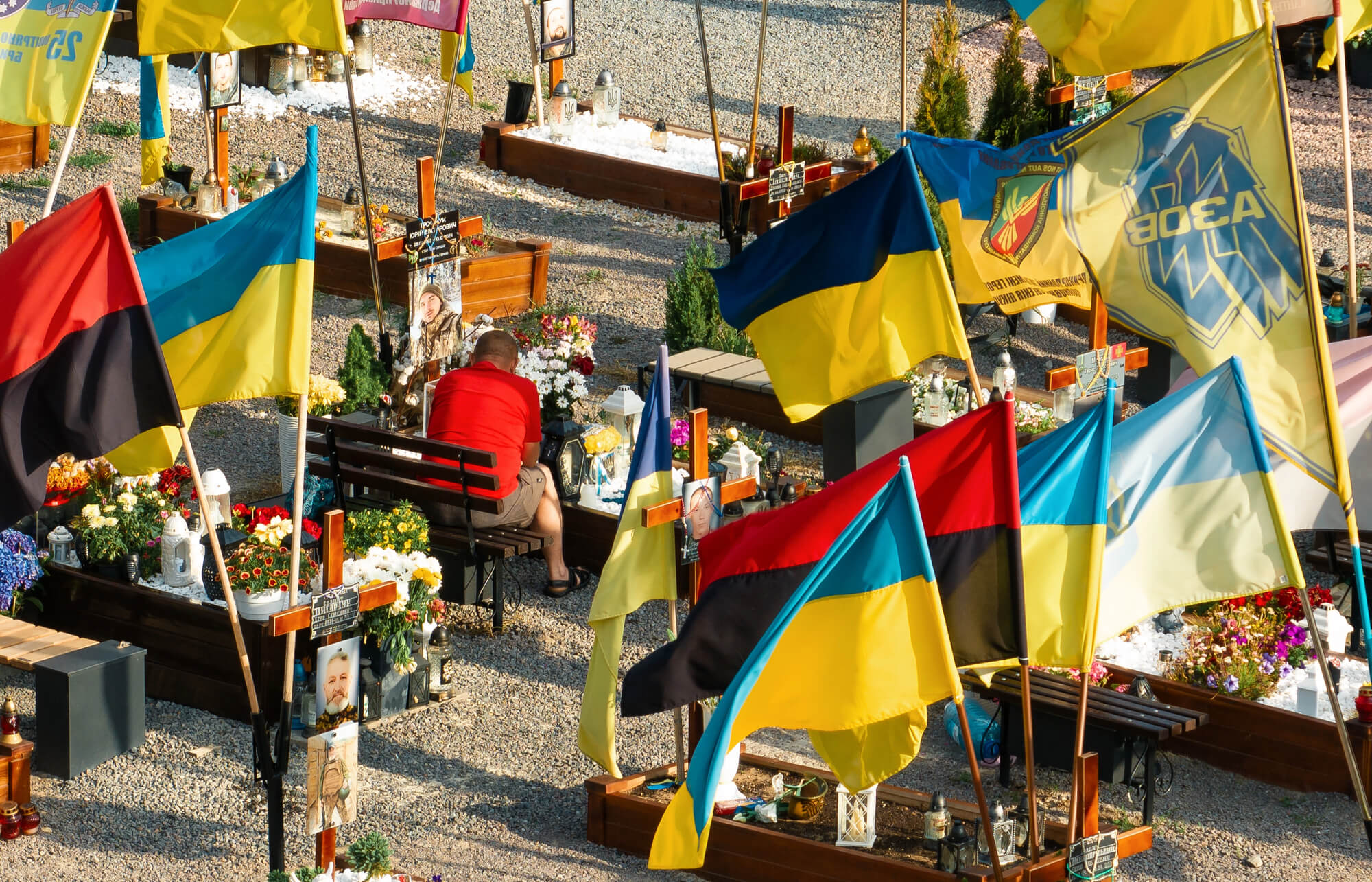As the world holds its breath to see if Israel and Iran can maintain a ceasefire, it’s worth analyzing some troubling global patterns. Authoritarian powers are growing bolder and alliances between them are tightening. The number of armed conflicts in 2024 was higher than in any year since 1946. Now democracies face the risk of losing focus due to the dual demands of navigating a Middle East war while continuing to help Ukraine resist Russia’s full-scale invasion. But diverting any attention from Ukraine now would be a strategic mistake with long-term consequences.
Advanced democracies’ hesitation in aiding Ukraine militarily and in sanctioning Russia to the fullest has already been costly. The slow and insufficient military aid and the failure to cut off Russia from its main source of funding for the war — oil revenue — have allowed Russia to make (costly and incredibly slow) advances in Ukraine, to build up defenses to make it harder for Ukraine to take back occupied territory, and to co-opt Russia’s economy toward military production.
The new US administration has been reducing its support for Ukraine. Europe continues to stand by Ukraine but with limited means. And now, with another crisis breaking out nearby, governments may feel they have no choice but to spread their attention — and their resources — thinner. It may even seem reasonable to do so. After all, the frontlines in Ukraine have been moving very slowly for more than two years, as Ukraine has managed to withstand Russia’s constant onslaught. Meanwhile, the military confrontation between Israel and Iran is sure to evolve quickly and in unpredictable ways.
But what liberal democracies — including Europe, the United States, Canada, Australia, Japan, and South Korea — must do now to prevent global conflicts from multiplying is to send a strong signal that they remain committed to a stable international order. That means doubling down on Ukraine: delivering the weapons needed to strike deeper into Russian-held territory and to defend against Russian strikes, as well as lifting restrictions on how they can be used. Doubling down also requires cutting off Russia’s ability to fund its war, which can be done by lowering the oil price cap, targeting the shadow fleet, and imposing stronger secondary sanctions, which penalize third parties that help Russia bypass existing restrictions.
There are dangers in inaction. If Israel or the US decides to destroy Iran’s oil-producing capacity or if Iran decides to strike nearby oil infrastructure, it could spark a serious energy crisis. Prior to the recent ceasefire announcement, oil prices were climbing. That alone could boost Russia’s war effort. High oil prices mean more revenue for the Kremlin — revenue it needs to keep the war in Ukraine going.
Aside from handing the upper hand to Russia, another risk of democracies letting their attention be divided is the signal that it sends to China. Beijing is learning from how democracies respond to Russia’s invasion of Ukraine. Some actions — like financial sanctions and limited arms shipments — have shown that democracies won’t stand by entirely. But many of the lessons are not so reassuring. Liberal democracies have repeatedly shown that they can be manipulated by nuclear saber-rattling. Political gridlock delayed funding and weapons delivery for months. The US and Europe have balked at ceasing Russian state assets to compensate Ukraine for Russia’s aggression. They have failed to fully confront Russia’s targeting of civilians, kidnapping of Ukrainian children, executions of prisoners of war, torture, and other war crimes. In short, the picture has been one of hesitation and weakness.
If China sees wealthy democracies backing away from Ukraine now, while being drawn into a new conflict with Iran, it may interpret this as a further sign of weakness. That would be dangerous. Beijing has its eye on Taiwan, and it’s already weighing the risks. Distracted governments, struggling to handle two simultaneous crises, might be just the opportunity China is waiting for. That would be a nightmare scenario.
Even continuing the status quo — providing Ukraine just enough to defend itself but not enough to push Russia out — is risky. It would send a broader message to would-be aggressors everywhere: US and Europe’s commitment is limited and their staying power is short. That’s the kind of message that can invite more conflict, not less.
Wealthy democracies must recognize that the current and potential crises aren’t isolated. Russia, Iran, and China may have different interests, but they are united in one key way: they all want to weaken democracy and reshape the international order to suit their needs. They benefit when democratic governments appear divided, distracted, or unsure of themselves.
That’s why helping Ukraine now should not be seen as a distraction from the Middle East but as part of the response. Showing that liberal democracies can support Ukraine while managing other challenges would send a powerful signal that they can act on more than one front — and that waiting for them to get fatigued and distracted is not a viable way for aggressors to prevail.
The choice isn’t between Ukraine or the Middle East. It’s between showing that the US and Europe can still uphold the rules-based order they helped create — or proving that they no longer can.
Attention
The author doesn`t work for, consult to, own shares in or receive funding from any company or organization that would benefit from this article, and have no relevant affiliations



